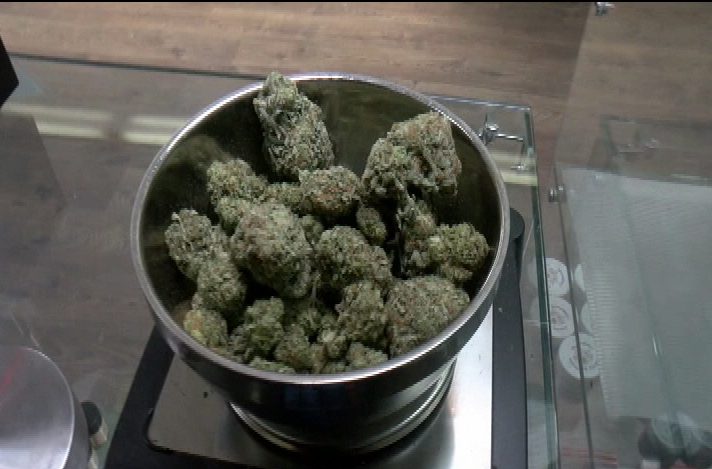

The province has tabled new legislation to deal with the legalization of cannabis. File photo.
The British Columbia government introduced a trio of bills on Thursday outlining recreational cannabis regulation.
The new rules added clarity to some rules that have already been made public.
The Cannabis Distribution Act will put the wholesale distribution of non-medical cannabis under the control of the Liquor Distribution Branch and establish a public wholesale distribution monopoly. There will be government-run retail stores and online sale websites. The first government-operated retail store is expected to be open by late summer and once cannabis is legalized, BC Cannabis Stores will be province’s sole online cannabis retailer
All retail stores, both government and private, will have restrictions on the amount they are able to sell to one customer at once, with the restrictions are measured in weight. A maximum of 30 grams of buds or oil can be sold to an individual at one time.
The Liquor Control and Licensing Branch will be responsible for the licensing of private non-medical cannabis retail stores, and monitoring compliance of both public and private stores.

Logo for the new cannabis store.
The Cannabis Control and Licensing Act will:
- Allow adults to possess up to 30 grams of cannabis in a public place
- Set 19 as the provincial minimum age to purchase sell or consume cannabis
- Prohibit cannabis smoking and vaping everywhere tobacco smoking and vaping are prohibited, as well as at playgrounds, sports fields, skate parks and other places where children commonly gather
- Prohibit the use of cannabis on school properties and in vehicles
- Authorize adults to grow up to four cannabis plants per household. However, the plants must not be visible from public spaces off the property, and home cultivation will be banned in homes used as daycares
- Establish a cannabis retail licensing regime similar to the current licensing regime for liquor
- Provide enforcement authority to deal with illegal sales
- Create a number of provincial cannabis offences which may result in a fine ranging from $2,000 to $100,000, imprisonment of three to 12 months, or both
- Where necessary, to comply with charter rights and human rights law, exemptions will be provided to individuals who are federally authorized to purchase, possess and consume medical cannabis
There will also be amendments to the Motor Vehicle Act, which will increase training for law enforcement and toughen provincial regulations to give police more tools to remove drug-affected drivers from the road and deter drug-affected driving. The amendments include:
- A new 90-day Administrative Driving Prohibition (ADP) for any driver who police reasonably believe operated a motor vehicle while affected by a drug or by a combination of a drug and alcohol, based on analysis of a bodily substance or an evaluation by a specially trained police drug recognition expert (DRE)
- New drivers in the Graduated Licensing Program (GLP) will be subject to a zero-tolerance restriction for the presence of THC (the active ingredient in cannabis).
B.C. is one of the last provinces in Canada to table its recreational marijuana legislation but sets the foundation for once federal regulation is set to come down the barrel later this month.”The legislation introduced today provides a sound foundation for the regulation and safe implementation of legalized cannabis in British Columbia,” Mike Farnworth, Minister of Public Safety and Solicitor General, said in a statement.
“This marks a major milestone, and puts our province in a position to not only be ready for federal cannabis legalization in late summer but does so in a way that reflects the province’s goals for legalized cannabis that prioritize public health and safety, particularly for our children and youth.”
Prior to legalization, the provincial government will also launch a public awareness and education campaigns related to the health impacts of cannabis use and the risks of drug-affected driving.
?The health and safety of British Columbians must be the first priority as the province implements its non-medical cannabis regime,? Adam Olsen, B.C. Green Party spokesperson for cannabis legalization and agriculture, said in a release.
?At this stage, our caucus is pleased with the government?s direction. Looking ahead, my priority is to ensure that the regime maximizes business opportunities for local companies while mitigating adverse effects on existing business and communities.”
Farnworth says the date set by the federal government for cannabis legalization is just the beginning.
“B.C. will monitor implementation and make any necessary adjustments to provincial regulations to ensure our provincial goals are being met,” Farnworth said.
The legislature will debate and review the proposed bills before they are finalized and passed into law. After that, the timeline is dependent upon the proposed federal legislation receiving royal assent.
Until laws change, the use of non-medical cannabis is still illegal in British Columbia.
With files from The Canadian Press




